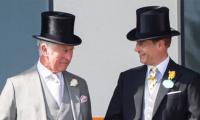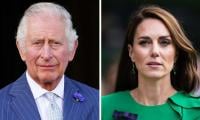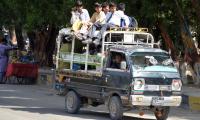ISLAMABAD: The Supreme Court (SC) has trashed almost all the prayers of Pakistan Tehreek-e-Insaf (PTI), Jamaat-e-Islami (JI) and Shiekh Rashid in its verdict in PanamaLeaks case.
Justice Ejaz Afzal, who wrote the main judgment, discussed all the prayers in detail and gave his judgment on the questions raised by the petitioners i.e. PTI, JI and Shiekh Rashid Ahmed.
The first prayer of the petitioners was that the respondent No 1 (Nawaz Sharif) in his address to the nation on April 5, 2016 and to Parliament on May 16, 2016 made false statements which were not only contradictory but also in conflict with the statements made by his sons, respondent No 7 and 8 herein.
The SC judgment on this prayer says, “The immediate reaction of Respondent No 1 was that he delivered a speech inside and another outside Parliament. He, in the said speeches, admitted the ownership of the flats and alluded to the means whereby he and his family purchased them. However, in his concise statement he denied to have owned the flats. Respondent No 7 in his concise statement claimed to have owned them. The bulk of unauthenticated documents brought on the record by the petitioners were pitched against another.
“We, therefore, have no hesitation to hold that a question of this nature in the absence of undisputed evidence cannot be decided by this court in exercise of its jurisdiction under Article 184(3) of the Constitution,” the judges said.
The second prayer of the PTI and other parties was that Respondent No. 1 (Nawaz Sharif) looted and laundered the money, formed British Virgin Island companies, purchased as many as four flats at Avenfield House Park Lane, London in the name of his dependents who at that time had no source of income and failed to declare his assets in his tax returns.
The apex court’s verdict while trashing this prayer says, “While reading of Articles 62 and 63 of the Constitution reveals that none of them requires any member of Parliament to account for his assets or those of his dependents even if they are disproportionate to his known means of income. Given Section 9(a)(v) of the Ordinance requires him to account for his assets and those of his dependents and benami if they are disproportionate to his known means of income in a trial before an Accountability Court but not in a proceeding under Article 184(3) of the Constitution. Therefore, failure of Respondent No 1 to do that would not be of any consequence. It, thus, cannot call for his disqualification at least at this stage.
The third prayer of the petitioners says that the respondent No 1 (Nawaz Sharif) did not disclose the assets of his dependents as he was liable to be disqualified under Articles 62(1)(f) and 63(1)(o) of the Constitution.
The SC in response to this prayer says, “Any allegation leveled against a holder of public office under these provisions of law requires an investigation and collection of evidence showing that he or any of his dependents or benami owns, possesses or has acquired assets etc disproportionate to his known means of income. Such investigation is followed by a full-fledged trial before Accountability Court for determination of such liability. Neither did the investigation agency investigate the case, nor had any of the witnesses been examined and cross-examined in an Accountability Court nor had any of the documents incriminating the person accused been produced and proved in accordance with the requirements of Qanoon-e-Shahadat Order, 1984, nor had any oral or documentary piece of evidence incriminating the accused had been sifted, no verdict disqualifying a holder of public office could be given by this court in a proceeding under Article 184(3) of the Constitution on the basis of a record which was yet to be authenticated. “We must draw a line of distinction between the scope of jurisdiction of this court under Article 184(3) of the Constitution,” the judges said.
The fourth prayer was that the Respondent No. 6 (Maryam Nawaz) had, ever since her marriage, been living on her own with her husband in one of the houses in Shamim Agri Farms, Raiwind owned by her grandmother; that whatever she received, purchased, spent, gifted or disposed of had been fully indicated in her tax returns, therefore, nothing adverse could be fished therefrom to make out a case of disqualification of Respondents No. 1 and 9; that whatever her father gifted to her in any form was out of his abundant love and affection for her; that she had never been a beneficial owner of any of the flats at Avenfield House Park Lane, London.
The apex court in its verdict said that the Respondent No 6 was independent hence the PTI prayers stood trashed.
The fifth prayer says that the case of Respondent No 10 (Ishaq Dar) was that the confessional statement attributed to him was a result of inducement, coercion and torture spread over a period of almost six months; that it was by no stretch of imagination willed and voluntary; that the criminal transaction sought to be reopened through the confessional statement was past and closed as the same matter had been set at rest by the Lahore High Court in its judgment rendered in the case of Hudaibiya Paper Mills.
The apex court had mentioned that Prime Minister Nawaz Sharif and his two sons who would appear before the JIT meaning that the PTI’s prayer about Mr Dar had been trashed.
Awami Muslim League chief appeared in the court with his lawyers Sardar Raziq and Sardar Shehbaz
Board meeting also allowed increase in business center and commercial area of hotel plots from 5 to 10 percent along...
Foreign exchange reserves currently stand at $8 billion, while Pakistan would also receive $1.1 billion IMF tranche:...
CM directed that the enforcement authorities be made functional in six months, and legislation in this regard be...
Pakistani soldiers and policemen stand guard outside the Haripur central jail. — AFP/FileWASHINGTON: The Pakistani...
Establishment Division has also issued an NoC to fill 465 civilian posts in the Ministry of Defence and 11 posts in...







